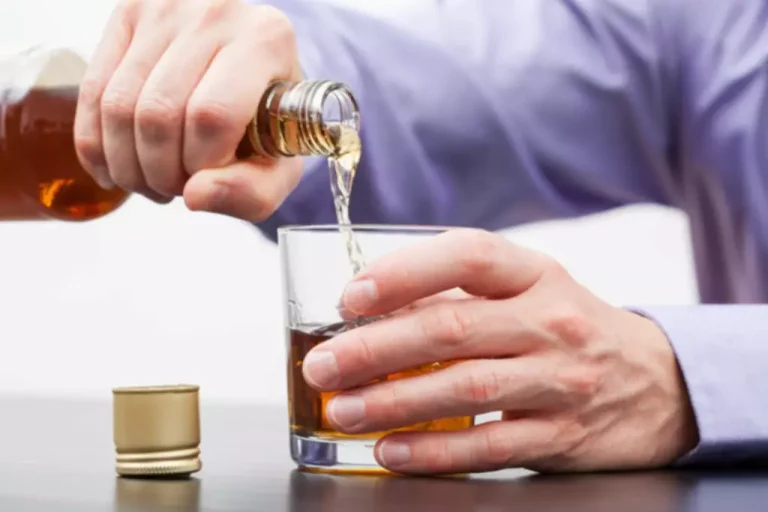
In order for treatment to work, the person with an alcohol addiction must want to get sober. Regardless of how the addiction looks, someone typically has an alcohol addiction if they heavily rely on drinking and can’t stay sober for an extended period of time. Although the exact cause of alcohol use disorder is unknown, there are certain factors that may increase your risk for developing this disease. Alcoholism, referred to as alcohol use disorder, occurs when someone drinks so much that their body eventually becomes dependent on or addicted to alcohol. This question has no definitive answer since both can be addictive depending on the person. Some people may have difficulty controlling their alcohol consumption, while others may emotionally rely on certain types of food.

Alcohol Tolerance and Addiction
Psychotherapy for alcoholism often utilizes evidence-based modalities such as cognitive behavioral therapy (CBT) and dialectical behavior therapy (DBT). An alcohol use disorder (AUD) https://ecosoberhouse.com/article/does-alcohol-dehydrate-you/ can be difficult to detect in its early stages. During this initial stage, the individual may start drinking more regularly and often consumes more in one sitting than before.

Reward Center

The study looked at records for nearly 84,000 patients, all of whom were medically obese. Those treated with semaglutide, compared to those treated with other anti-obesity medications showed a 50-56% decrease for both the initiation and recurrence of alcohol-use disorder in the following year. Poor sleep quality impairs your body’s ability to regulate body temperature. For menopausal women, in particular, disrupted sleep can trigger or worsen hot flashes.
Drug companies step in for Alzheimer’s
- Alcohol can damage the organs, disrupt communication between brain cells, and weaken your immune system.
- What started out as self-medication rapidly became full-blown addiction to drugs and alcohol in the years that followed, leading Ramiro Gonzales to “steal and forge checks” to finance the addiction.
- “Adolescents and emerging adults are therefore at risk for future neurocognitive changes related to heavy, intermittent alcohol use and subsequent alcohol-related blackouts.”
- Schacht first became interested in running a trial like this when a psychiatrist colleague of his mentioned some of his patients who’d taken semaglutide for obesity had completely lost interest in alcohol.
- Most of the rats switched over to sugared water when given the option, but the persistent minority continued to dose themselves with alcohol.
“People who have alcohol use disorder get an internal brain reward for drinking, and we think that the semaglutide removes at least part of that sense of being rewarded for taking a drink.” A feeling of fatigue after a night of drinking isn’t just from sleep interruptions. Alcohol has other effects on your body that contribute to feeling tired and sluggish the following day. Alcohol is a diuretic, meaning it increases urine production and fluid loss from the body more quickly than you can replace it. Dehydration zaps your energy levels, making you feel tired and less alert than usual. Research shows that poor sleep quality and disrupted sleep raise heart rate, heart rate variability, and blood pressure while you sleep, which can stress the heart and increase the risk of cardiovascular diseases.
Physical and Psychological Addiction to Alcohol
Genetic, psychological, social and environmental factors can impact how drinking alcohol affects your body and behavior. Theories suggest that for certain people drinking has a different and stronger impact that can lead to alcohol use disorder. Alcohol addiction is 50% heritable, meaning genetics can play a role in the development of alcohol addiction.8 However, other factors, like social environment, mental health, and family history, also contribute to alcohol addiction. Physical alcohol addiction occurs when the body becomes dependent on it and requires more alcoholic substances to experience its effects. Alcohol tolerance, cravings, and withdrawal symptoms are all signs of physical addiction.
Final Stage: Addiction Treatment
Recovery Centers of America offers a judgment-free space where patients can focus solely on their recovery without external distractions. Call RECOVERY today for more information about our programs and services. “At the time, Ramiro was gripped by a serious addiction rooted in his exposure to drugs while still in the womb, compounded by the trauma and neglect that marked his childhood,” according to his clemency petition.
- The severity of the disease, how often someone drinks, and the alcohol they consume varies from person to person.
- This comorbidity underscores the intricate relationship between psychological well-being and alcohol dependency.
- It can be found in homes and at family gatherings, barbecues, restaurants, nightclubs, movie theaters, and resorts, among many other places.
- We do not receive any commission or fee that is dependent upon which treatment provider a caller chooses.
The “habituation” of drinking is also a critical factor in developing alcohol addiction. Repeating the same action until it becomes an automatic response forms habitual behaviors. The more a person drinks, the likelier they are to become dependent on alcohol to manage stress and emotions. An increase in tolerance marks the second stage—people drink larger doses of alcohol to experience the same effects.
The drugs are also much more expensive than existing medications that address insulin resistance like metformin. “GLP-1 agonists can be used in place of metformin if patients didn’t previously respond at all to metformin or if they did not why is alcohol so addicting tolerate it because of side effects,” Kumar said. Meanwhile, Cree, who also prescribes semaglutide to patients with diabetes and obesity — many of whom also have PCOS — said the personal experiences she’s heard of have been revealing.
- Thus, Antabuse, working as an acid aldehyde inhibitor, attempts to achieve the same intolerance to alcohol.
- These dual, powerful reinforcing effects help explain why some people drink and why some people use alcohol to excess.
- Heavy drinking over a long period of time can leave the body needing alcohol every day, and if the drinker attempts to stop suddenly they may experience sweating, shaking and nausea, and may even go into shock and die.
- If you feel that you sometimes drink too much alcohol, or your drinking is causing problems, or if your family is concerned about your drinking, talk with your health care provider.
- Physical alcohol addiction occurs when the body becomes dependent on it and requires more alcoholic substances to experience its effects.
- AUD can only be diagnosed by a licensed mental health professional, who evaluates your experience of alcohol use and misuse based on presence of 11 clinical criteria within the last year.
Start Recovery Today
Beyond PCOS, trials are in the works to see if GLP-1 agonists can treat addiction and Alzheimer’s. Researchers are also exploring whether the drugs can help with Parkinson’s, sleep apnea and an increasingly prevalent serious condition called non-alcoholic fatty liver disease. A group of researchers in Ireland even published an intriguing, albeit very small, study in the journal Obesity showing people with obesity who took Ozempic had some immune cell improvements. These effects could, in theory, mean a better chance of fighting off cancer, though experts say the research is too early to say for sure. Since the drugs flooded the scene, there have been reports of other potential uses for them, to treat conditions ranging from PCOS to Alzheimer’s, Parkinson’s, addiction, alcohol use disorder, liver disease and possibly cancer. “The [drugs] have to do with the dopamine system and with the transmission of signals in the dopamine system, which are the reward system in the brain,” Davis explained.
